UN rejects claims of bias among aid workers in Ethiopia's Tigray
The United Nations (UN)'s top aid official has denounced as "dangerous" the accusations by Ethiopia's federal government that aid workers are favoring and even arming rebel forces in the country's conflict-ridden region of Tigray.
UN Under-Secretary General for Humanitarian Affairs and Emergency Relief Coordinator Martin Griffiths made the remark at a press conference in Ethiopia's capital, Addis Ababa, on Tuesday, which was held at the end of his six-day visit to the Horn of Africa country.
"Blanket accusations of humanitarian aid workers need to stop," he said, adding, "They are unfair, they are unconstructive, they need to be backed up by evidence if there is any; and, frankly, it's dangerous."
Fighting erupted in Tigray in November last year when the federal government accused the Tigray People’s Liberation Front (TPLF) — once the region’s powerful ruling party — of attacking military bases across the north. Three weeks later, the government declared victory when it gained control of Mekelle, the regional capital city.
But the TPLF forces, who had retreated to the mountainous areas around the Tigrayan capital, resumed fighting later. They retook Mekelle and most of Tigray at the end of June after the government pulled out its soldiers and declared a now-faltering ceasefire. The TPLF, which had played a major role in Ethiopian politics before Prime Minister Abiy Ahmed came to power, sees itself as a strong force in the region.
In mid-July, Redwan Hussein, spokesman for a government task force set up in response to the Tigray conflict, accused some aid groups of "arming the other side," meaning the Tigray People’s Liberation Front (TPLF), but gave no details.
At least a dozen aid workers have lost their lives since the conflict began in Tigray, including one Spanish and two Ethiopian staff members from Doctors without Borders (MSF), who were killed in June, prompting the medical charity to suspend operations in some parts of the country's restive north.
Aid workers have also complained that even though Abiy has declared a humanitarian ceasefire, aid access in Tigray is as bad as ever, hobbled by insecurity and bureaucratic hurdles.
Griffiths further called for access to Tigray in order to provide support for those who are in urgent need of humanitarian aid, stressing that Ethiopia's federal government was "the ultimate, primary actor" in ensuring that aid can reach those in need.
Currently, he said, "we're nowhere near meeting the obligations. We are at the moment delivering an inadequate response to the task in front of us."
He noted that 100 aid trucks needed to reach Tigray each day in order to meet humanitarian needs, adding that the number was a "calculated need" and not "over-estimated."
The UN's humanitarian chief also said the circumstances needed to change in order to speed up the movement of trucks in the region, adding that there needed to be assured access routes by land as well as air going in and out of Mekelle.
"And frankly we need the war to end," he said.
According to Griffiths, 122 trucks have made it into Tigray in recent days.
Elsewhere in his remarks, Griffiths said Tigrayan forces pushing south and west into the neighboring Amhara region had displaced 200,000 people there, and 54,000 in Afar region to the east.
He said the needs that have been spoken about in Tigray were huge, urgent and important, adding that "now the needs are growing in Afar and Amhara."
Meanwhile, Ethiopia's federal government has suspended operations for the Dutch branch of the medical charity MSF.
"We are in the process of urgently seeking clarification from the authorities around the reasons and details for this suspension," MSF said in a statement on Tuesday night, explaining it received a letter on July 30 suspending their activities for three months.
The Norwegian Refugee Council was given similar orders, an unnamed spokesman said in a statement, adding that it was in "dialog with authorities."
The conflict in Tigray has sparked international criticism of Abiy and concern for the stability of Africa's second-most populous country. It has forced nearly two million people to flee their homes and plunged around 400,000 people into famine conditions.
The United Nations Children's Fund (UNICEF) has also warned that more than 100,000 children could suffer from life-threatening severe acute malnutrition in the next 12 months, a 10-fold jump in average annual levels.
VIDEO | Press TV's news headlines
Hamas: Israel escalating ceasefire violations in Gaza
Venezuela's government declares unwavering unity behind Maduro
VIDEO | Global outcry over Venezuela president abduction
Iran keeps wheat import subsidies despite cutting other food supports
Venezuelan military stands with acting president after US kidnapping of Maduro
VIDEO | Press TV's news headlines
VIDEO | Protesters in Toronto slam US kidnapping of Venezuelan president


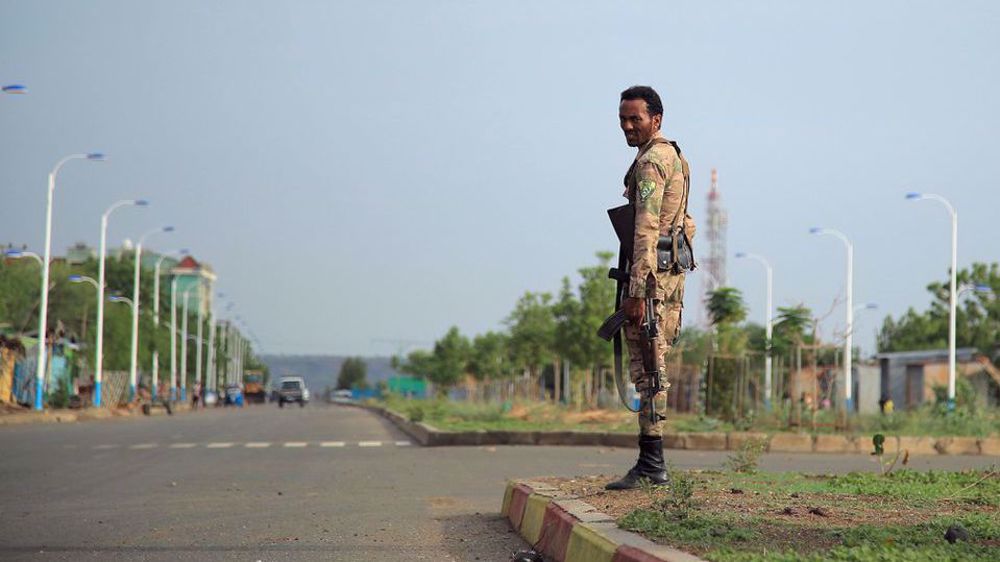
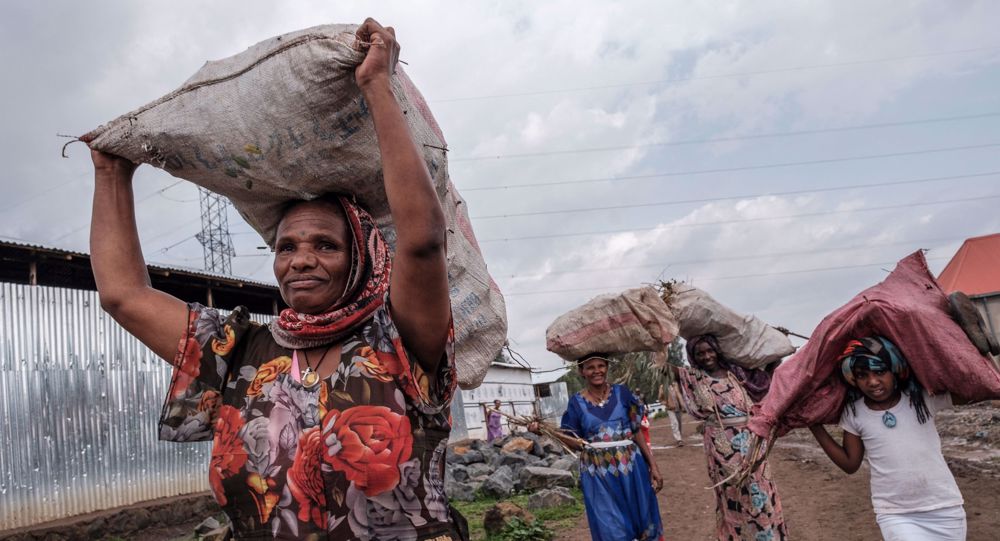
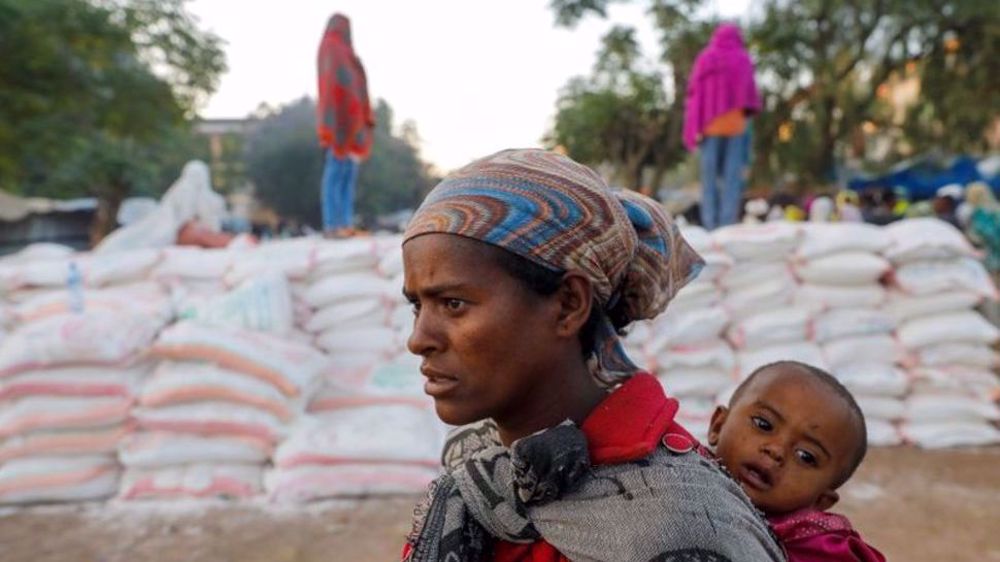

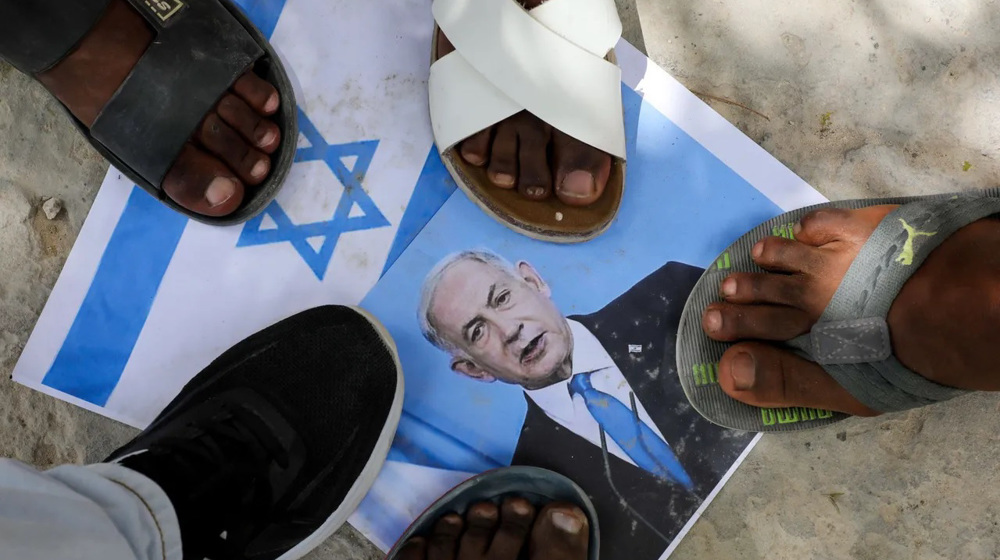
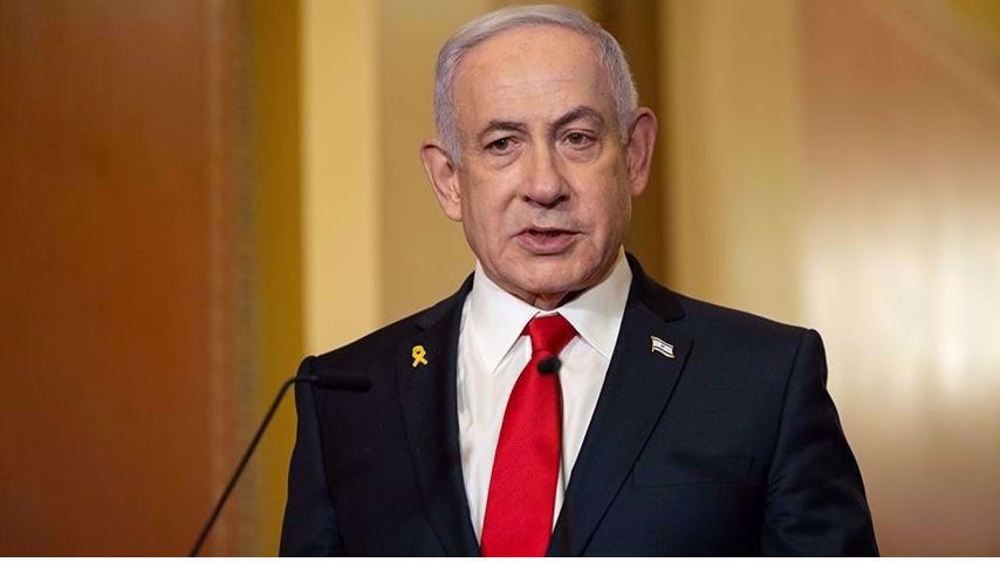



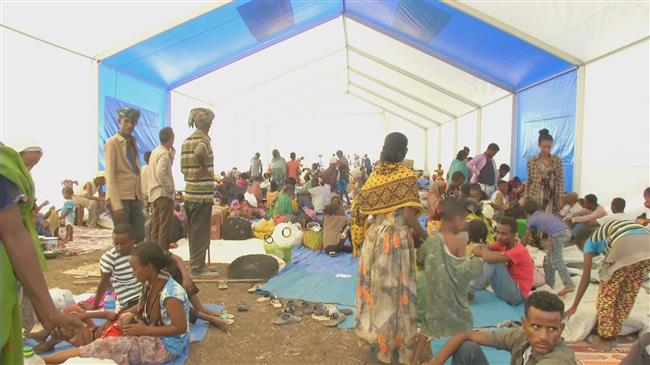
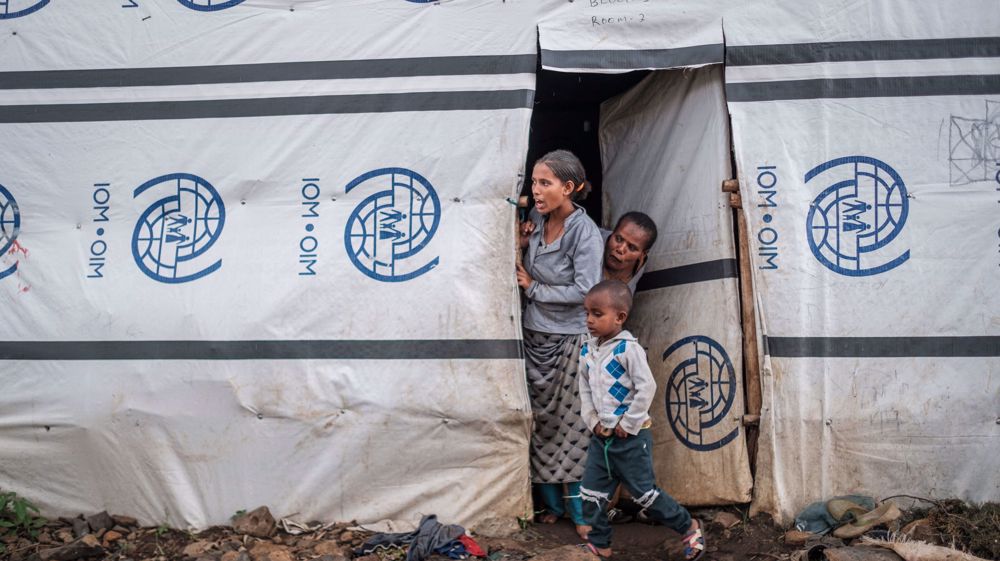

 This makes it easy to access the Press TV website
This makes it easy to access the Press TV website